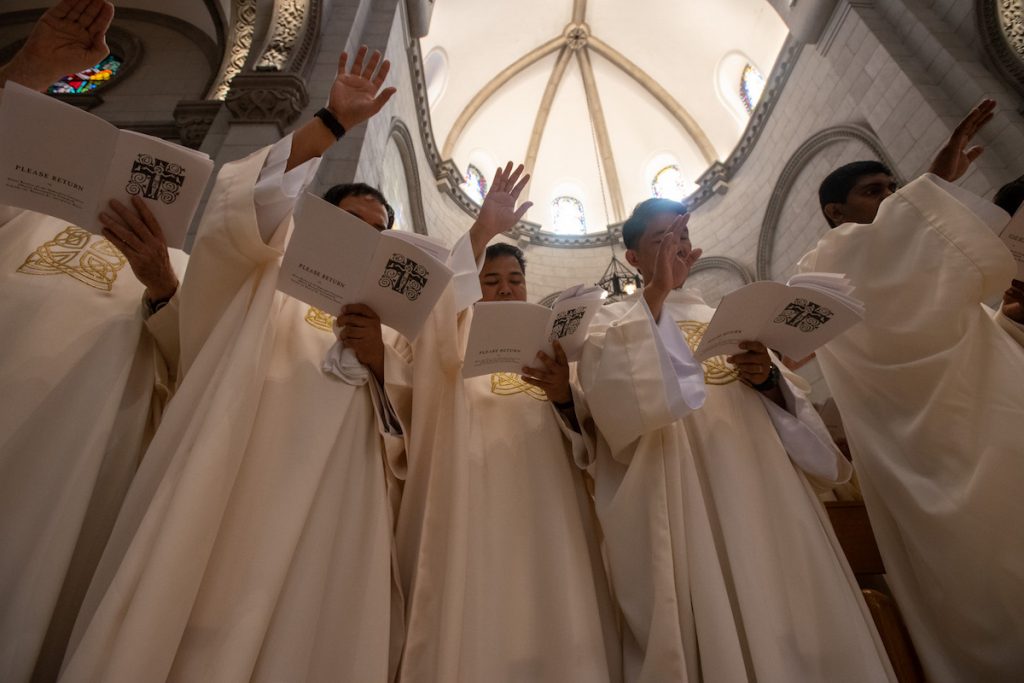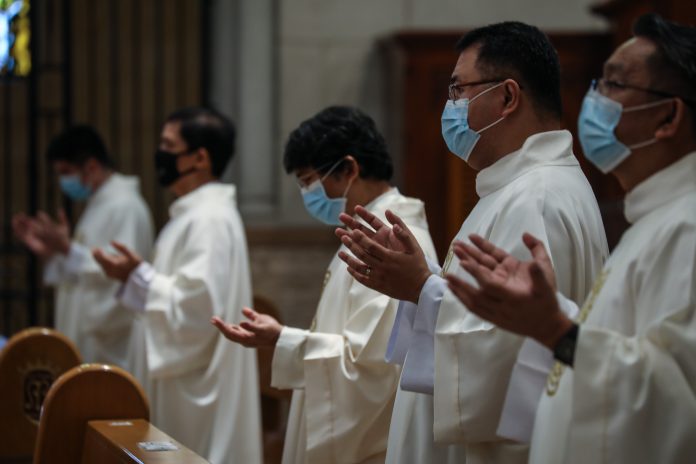The Catholic Church needs to come up with a “holistic” mental health program for the clergy in the wake of reports that at least two priests ended their lives, possibly due to mental health issues.
The Church should have “self-care programs” for its clergy that will address individual priests and create support groups among the clergy.
Claretian priest Victor Sadaya, executive director of Porta Coeli Center for Psychotrauma Management, noted an increasing number of mental health issues during the coronavirus pandemic.
The priest admitted that Church is “not prepared” to support members of the clergy who also battle issues like depression as “not all dioceses have psychosocial programs.”
“The approach should be holistic,” he said. “You can no longer separate the spiritual from the emotional, the biological, and the social,” added Father Sadaya.
Bishop Pablo Virgilio David of Kalookan said priests also need care.
“Even while priests are expected to be spiritual caregivers, [they] are human beings too who have to deal with human issues,” said the bishop.
Bishop David said Pope John Paul II in his 1992 apostolic exhortation concerning the formation of priests emphasized the importance of “human formation.”
The prelate said the spiritual, intellectual and pastoral aspects of the formation are “not enough.”
“We also need the assistance of psychologists and psychotherapists, sometimes even psychiatrists, especially when we find ourselves unable to cope with the stresses of our ministry and our human concerns,” said Bishop David.
Father Sadaya said that aside from the readiness of the institutional Church to address issues confronting individual priests, it is also necessary for priests to admit that they are not well.
“[Priests] tend to brush it off,” he said, adding that “it takes a lot of humility to accept that you are going through something.”
Father Sadaya called on his fellow priests “to be creative,” especially now that they are under “forced isolation” due to the pandemic.
He said the pandemic has disrupted routine that priests are used to, resulting in the feeling of helplessness and, eventually, anxiety.
“They are used to speaking in front of parishioners, to be surrounded by people, but now they’re down to nothing,” said Father Sadaya.

He said it is “necessary” for priests to use other platforms, like social media, to reach out to parishioners and make themselves busy.
“If priests can be hit by depression, how much more his parishioners who can’t be physically present in the church?” said Father Sadaya.
The Episcopal Commission on Health Care of the Catholic bishops’ conference in the Philippines earlier called on the faithful to show a “collective” effort to address mental health issues.
Father Rodolfo Vicente Cancino, head of the commission, said families, schools, organizations, and the Church should be together in their perspectives and approach on psychological issues.
He reminded the public that mental health is “also a need” that should be prioritized during the pandemic.
“Now is the time that we give much importance to mental health issues,” said Father Cancino, adding that the illness affects all genders and ages.
The priest noted that cases of depression and suicide are rising in the Philippines.
The National Center for Mental Health said their hotline noted an increase in the number of calls since the start of the pandemic.









